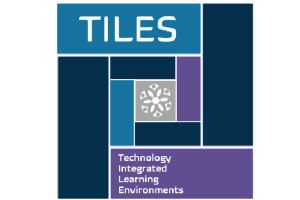Students are expected to learn how to make inferences in the third grade, but few high-quality resources are available to help students master this skill. Frequently it is practiced by giving students pictures and asking them to infer something about the picture (for example, from a photo of children standing in front of bicycles at a beach, a student could infer that it's summertime, that they are siblings, that they rode their bikes to the beach, etc.). Teachers evaluate the inferences based on whether or not they are plausible, but often students are left to make up a set of disconnected inferences. FossilVR is a novel virtual environment that grounds the skill of making inferences in an authentic context: a paleontological fossil dig.
Students travel through the virtual environment with Dr. Hannah, the lead paleontologist at the site, and dig up fossils, about which they are then asked to make observations and inferences in their field notebook. The notebook contains scaffolds to guide noticing to help students create an argument about the characteristics of the specimen. We hypothesize that this system will increase the quality of inferences made, support argumentation skills, and create a more enjoyable learning experience compared with traditional methods.

In the Technology-Integrated Learning Environments (TILES) lab we explore how technology meditates human learning in a variety of formal and informal contexts. Work in this lab is grounded in the Learning Sciences and explores how technologies can augment social and individual learning in contexts including museums, citizen science, classrooms, and online.


